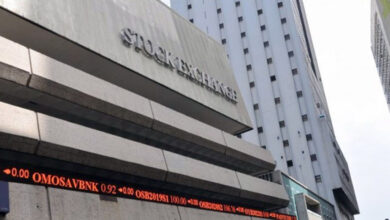NECA urges CBN to reconsider FX market management approach

The Nigeria Employers’ Consultative Association (NECA) has urged the Central Bank of Nigeria (CBN) to reconsider the adoption of what it called a guided float foreign exchange (FX) regime to achieve stability in the market.
This is just as the employers’ body said it stands firm in its commitment to advocating measures that address the root causes of inflation and promote sustainable economic growth.
Director-General of NECA, Adewale-Smatt Oyerinde, attributed the genesis of the inflationary pressure to the FX rate unification policy and liberalisation of the market.
He argued that the policies have exposed the economy to the whims of foreign suppliers, resulting in inflated costs for essential commodities.
He underscored the importance of revisiting policies that were conducive to economic stability and resilience before the implementation of the current exchange rate regime.
He noted that before the floating of the FX market, the economy was better off with inflation anchoring below 20 per cent mark.
Consequently, he urged the government to reconsider the guided FX floating regime, which he said was a dynamic and flexible FX management regime proven to be better than the current regime.
The NECA chief urged policymakers to heed the recommendations and take decisive action to address the underlying factors driving inflation.
According to him, only through a concerted effort to tackle the root causes of inflation can Nigeria achieve lasting economic stability and prosperity.
He said the recent surge in the consumer price index (CPI), as reported by the National Bureau of Statistics (NBS), has raised significant concerns.
Oyerinde said the persistent increase in food prices has contributed substantially to the overall CPI growth, regarding the escalating inflation and its adverse impact on private businesses.
He said the unchecked inflationary trend could have catastrophic consequences for the economy and private enterprises if not promptly addressed.
The director-general highlighted the quadrupling of input costs and commodity prices in the private sector, coupled with shrinking working capitals among businesses, which he said has led to idle capacities and the imminent collapse of many enterprises.
He stated that it was evident that the conventional measures implemented by CBN to curb inflation have proven ineffective in stemming this rising tide, thereby suggesting a return to the more beneficial guided float FX regime.
He said the high MPR may worsen inflationary pressure if the FX crisis is not addressed.
He said even as the CBN has aggressively pursued addressing inflationary pressure in the economy using the policy rate, inflation has persistently defied almost all control measures put up by the apex bank.
Speaking on the MPC decisions, Oyerinde, observed that the successive increase in the policy rate by the committee would continue to hurt investment decisions in the private sector.







